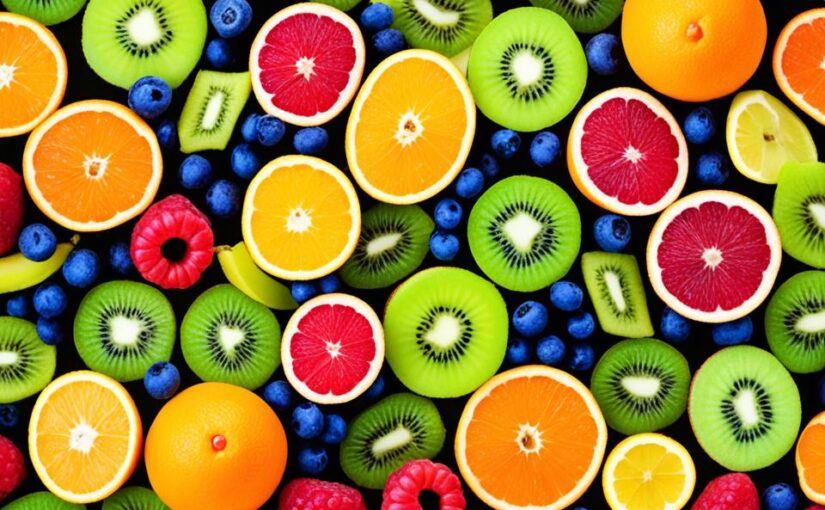When it comes to achieving a healthy weight, the key is to embrace a balanced and nutritious diet. One of the most effective ways to support your weight loss goals is by incorporating nutrient-dense fruits into your daily routine. Fruits are not only delicious but also packed with essential vitamins, minerals, and fiber that can help boost your metabolism, curb cravings, and keep you feeling full and satisfied.
From low-calorie options that can help you shed pounds to fiber-rich choices that promote a healthy digestive system, there is a wide variety of fruits that can be strategic allies in your weight loss journey. By understanding the unique benefits of these nutritious foods, you can create a personalized plan that aligns with your health and fitness objectives.
Fruits that Support a Balanced Diet
When it comes to weight loss, not all fruits are created equal. Incorporating low-calorie and nutrient-dense fruits into your diet can be a game-changer. These types of fruits provide essential vitamins, minerals, and fiber without excessive caloric intake, making them an ideal choice for those looking to shed pounds.
Low-Calorie and Nutrient-Dense Options
Fruits like berries, citrus fruits, and melons are excellent examples of low-calorie and nutrient-dense options. Blueberries, for instance, are packed with antioxidants and fiber, while grapefruit is known for its thermogenic properties that can help boost metabolism. Watermelon, on the other hand, is a refreshing and hydrating fruit that can curb cravings due to its high water content.
Fiber-Rich Fruits for Satiety
Incorporating fiber-rich fruits into your weight loss plan can also be beneficial. Fruits such as apples, pears, and avocados are high in soluble fiber, which helps promote feelings of fullness and satiety. This can lead to reduced calorie intake and fewer cravings throughout the day, making it easier to stick to a healthy diet.
By prioritizing low-calorie, nutrient-dense, and fiber-rich fruits, you can support a balanced diet that nourishes your body while also supporting your weight loss goals.
Good Fruit for Diet
When it comes to weight loss, the right choice of fruits can make a significant difference. Some of the best fruits for dieting and weight management include apples, berries, citrus fruits, and stone fruits like peaches and plums. These healthy fruit options for dieting are not only low in calories but also packed with essential nutrients, fiber, and antioxidants that can support overall health and weight loss goals.
Ideal fruits for diet, such as apples, are known for their high fiber content, which helps promote feelings of fullness and satiety, potentially reducing calorie intake. Berries, on the other hand, are top fruits for dieting due to their low-calorie nature and abundance of beneficial plant compounds that may boost metabolism and aid in weight management.
Citrus fruits, like oranges and grapefruits, are also excellent fruit choices for weight management as they are high in water content and can help with hydration, which is crucial for weight loss. Additionally, stone fruits such as peaches and plums are ideal fruits for diet as they are low in calories, high in fiber, and contain compounds that may help regulate blood sugar levels, supporting a healthy weight.
Incorporating these best fruits for weight loss into your diet can be a simple and delicious way to support your weight loss journey and maintain a balanced, nutrient-dense intake. By making informed choices about the fruits you consume, you can nourish your body while working towards your health and wellness goals.
Incorporating Fruits into a Weight Loss Plan
When it comes to a successful weight loss journey, incorporating nutritious fruits can play a vital role. By strategically integrating fruits into your diet, you can leverage their natural benefits and support your overall health goals. From portion control to mindful eating, mastering these techniques can help you maximize the impact of fruits in your weight loss plan.
Portion Control and Mindful Fruit Consumption
While fruits are generally low in calories and packed with essential vitamins and fiber, it’s important to practice portion control when using fruits for weight loss. Consuming larger than recommended portions can inadvertently lead to excessive calorie intake, undermining your weight loss efforts. By being mindful of your fruit portions and focusing on the quality of your fruit intake, you can ensure that these nutritious options contribute to a balanced and sustainable diet.
Strategies for mindful fruit consumption include measuring your portions, being aware of serving sizes, and savoring each bite. This approach not only helps you maintain a healthy calorie balance but also encourages a deeper appreciation for the natural sweetness and textures of the fruits you enjoy.
The Benefits of Fruit for Overall Health
Incorporating a variety of fruits into your diet can offer far-reaching benefits for your overall health and well-being. Fruits are rich in essential vitamins, minerals, antioxidants, and other vital nutrients that can support a healthy immune system, reduce the risk of chronic diseases, and even promote longevity.
Beyond their role in weight management, the health benefits of fruits extend to improved heart health, better digestive function, and enhanced cognitive performance. Many fruits are high in fiber, which can help regulate blood sugar levels, promote feelings of fullness, and maintain a healthy gut microbiome. The nutritional value of fruits also includes a wealth of antioxidants that can protect cells from oxidative damage and reduce inflammation throughout the body.
Incorporating a diverse range of fruits for overall wellness can be a simple yet powerful way to support your long-term health and well-being. From citrus fruits rich in vitamin C to berries brimming with beneficial plant compounds, the options are vast and delicious. By making fruits a regular part of a balanced diet, you can reap the rewards of improved disease prevention and enhanced longevity.
